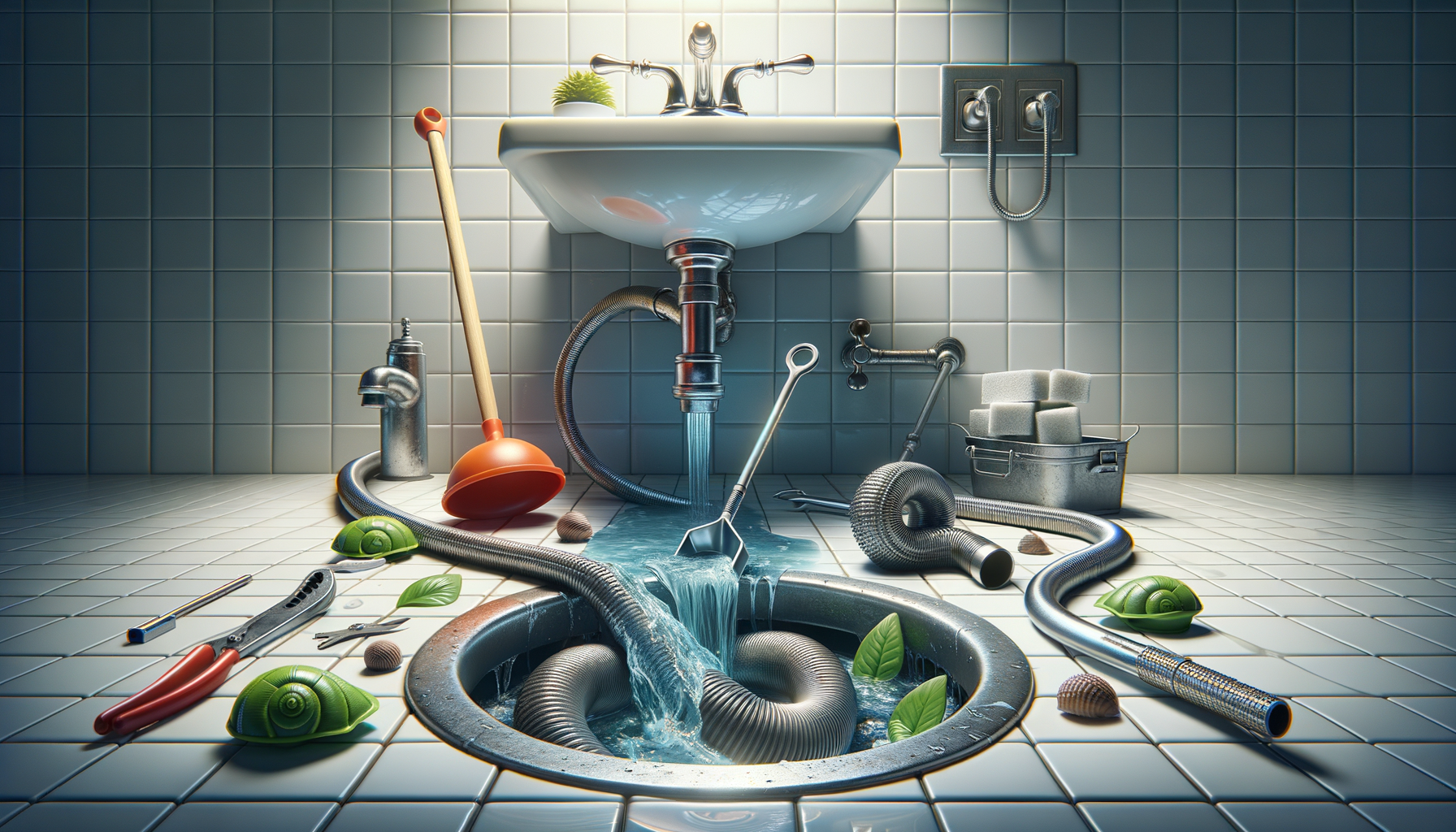
Mastering the Art of Unclogging Drains: A Comprehensive Guide
Introduction: The Importance of Addressing Clogged Drains
Clogged drains are a common household issue that can lead to significant inconveniences and potential damage if not addressed promptly. Understanding how to effectively unclog a drain can save you time, money, and the hassle of dealing with more severe plumbing problems. This guide explores various methods to tackle clogged drains, offering practical solutions you can try before calling in the professionals.
Common Causes of Clogged Drains
Understanding the root causes of drain clogs is essential for prevention and effective resolution. Clogs typically occur when foreign materials accumulate in the pipes, obstructing water flow. Some common culprits include:
- Hair: Often a major issue in bathroom drains, hair can bind with grease and other sticky substances, forming stubborn clogs.
- Soap Residue: Soap bars are made with fat, which can combine with minerals in water to form soap scum, leading to blockages.
- Food Waste: Kitchen sinks often suffer from clogs due to food particles, especially when fats and oils are not properly disposed of.
- Foreign Objects: Items like small toys, jewelry, or other debris can accidentally fall into drains and cause blockages.
By identifying these common causes, homeowners can take proactive measures to prevent clogs from forming in the first place.
DIY Methods to Unclog Drains
Before resorting to professional help, there are several do-it-yourself methods you can try to unclog your drains. These techniques are often effective for minor clogs and can be done with items you likely already have at home:
- Boiling Water: Pouring boiling water down the drain can dissolve soap scum and grease, clearing minor blockages.
- Baking Soda and Vinegar: This natural solution involves pouring baking soda followed by vinegar down the drain, allowing the mixture to fizz and break down the clog.
- Plunger: A plunger can create suction and dislodge clogs in sinks and toilets effectively.
- Plumber’s Snake: This tool can reach deep into pipes to break up and remove obstructions.
These methods are not only cost-effective but also environmentally friendly, reducing the need for harsh chemicals.
When to Call a Professional Plumber
While DIY methods can be effective, there are times when professional intervention is necessary. If you encounter any of the following scenarios, it may be time to call a plumber:
- Persistent Clogs: If clogs recur frequently despite your efforts, there may be a deeper issue that requires expert attention.
- Multiple Slow Drains: When several drains in your home are slow or clogged simultaneously, it could indicate a blockage in the main sewer line.
- Foul Odors: Persistent unpleasant smells emanating from drains might suggest a serious clog or sewer gas issue.
- Water Backups: Water backing up in sinks, tubs, or toilets is a clear sign of a significant blockage.
Professional plumbers have the tools and expertise to diagnose and resolve complex plumbing issues, ensuring long-term solutions.
Preventive Measures to Avoid Future Clogs
Prevention is always better than cure, and this holds true for clogged drains. Implementing a few simple practices can help keep your drains clear and functioning efficiently:
- Regular Cleaning: Clean your drains periodically using natural solutions like baking soda and vinegar to prevent buildup.
- Use Drain Screens: Install screens over drains to catch hair and other debris before they enter the pipes.
- Proper Disposal: Avoid pouring grease or coffee grounds down the kitchen sink, and dispose of them in the trash instead.
- Mindful Flushing: Only flush human waste and toilet paper down the toilet to prevent blockages.
By incorporating these preventive measures into your routine, you can minimize the risk of future clogs and maintain a smoothly functioning plumbing system.
Conclusion: Maintaining a Clog-Free Home
Addressing clogged drains promptly and effectively is crucial for maintaining a healthy and functional home environment. By understanding the causes, trying DIY solutions, knowing when to call a professional, and taking preventive measures, you can keep your drains clear and avoid unnecessary stress and expense. Embrace these strategies to ensure your plumbing system remains in optimal condition.